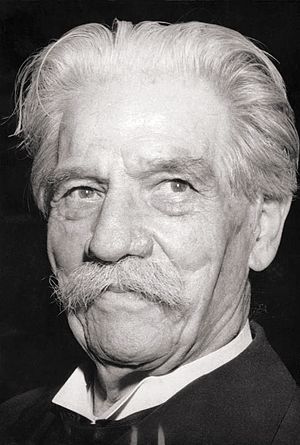Philip R. Davies, In Search of Ancient Israel (1992) pp. 35-36
historical research by biblical scholars has taken a . . . circular route, whose stages can be represented more or less as follows:

Davies then lists the four assumptions that these scholars have brought to their study:
1. The biblical writers, when writing about the past, were obviously informed about it and often concerned to report it accurately to their readers. A concern with the truth of the past can be assumed. Therefore, where the literary history is plausible, or where it encounters no insuperable objections, it should be accorded the status of historical fact. The argument is occasionally expressed that the readers of these stories would be sufficiently knowledgeable (by tradition?) of their past to discourage wholesale invention.
2. Much of the literature is itself assigned to quite specific settings within that story (e.g. [the time of Tiberius, Pilate, Herod, Gallio, Gamaliel, Agrippa]). If the biblical literature is generally correct in its historical portrait, then these datings may be relied upon.
3. . . . Thus, where a plausible context in the literary history can be found for a biblical writing, that setting may be posited, and as a result there will be mutual confirmation, by the literature of the setting, and by the setting of the literature. . . .
4. Where the writer (‘redactor’) of the biblical literature is recognized as having been removed in time from the events he describes or persons whose words he reports . . . he must be presumed to rely on sources or traditions close to the events. Hence even when the literary source is late, its contents will nearly always have their point of origin in the time of which they speak. The likelihood of a writer inventing something should generally be discounted in favour of a tradition, since traditions allow us a vague connection with ‘history’ . . .
But Davies sees those four assumptions as flawed:
Each of these assertions can be encountered, in one form or another in the secondary literature. But it is the underlying logic which requires attention rather than these (dubious) assertions themselves. That logic is circular. The assumption that the literary construct is an historical one is made to confirm itself.
Here are Davies’ rejoinders to each of the assumptions above, taken from my vridar.info page:
#1 This claim simply asserts, without proof, that the Bible is true. It is just as easy to claim that bible authors made everything up.
#2 This again just assumes without proof that the Bible is true. It is just as easy to assume that the authors, like fiction writers of all ages, chose real settings for their stories.
#3 Good story tellers always try to add color to their fictions by touching them up with realistic details. No-one says that James Bond stories are true just because they are set in times of real Russian leaders, true places, etc.
#4 This is simply asserting, without evidence, that the stories must be true “because” we know they must have been true! One can just as easily assume that the stories were invented.
The solution for Davies?

Obviously we do not expect to find archaeological items to confirm the gospel narratives, but we should require other historical records to do the same. At least Albert Schweitzer thought so.
In reality, however, these writers are faced with the enormous problem that strictly speaking absolutely nothing can be proved by evidence from the past, but can only be shown to be more or less probable. Moreover, in the case of Jesus, the theoretical reservations are even greater because all the reports about him go back to the one source of tradition, early Christianity itself, and there are no data available in Jewish or Gentile secular history which could be used as controls. Thus the degree of certainty cannot even be raised so high as positive probability. [“Thus even an increase to the highest degree of probability is not possible.” — Cornelis Hoogerwerf]
(Schweitzer was opposed to the Christ Myth theory, of course, but at least he recognized a fundamental principle about research in ancient history that only a relative few biblical scholars today seem to acknowledge.)
Niels Peter Lemche — pp. 29 f. in The Israelites in History and Tradition (1998)
Everything narrated by [the bible authors] may in principle be historical, but the biblical text cannot in advance be accepted as a historical source or documentation; it has in every single case to prove its status as a historical source.

Many scholars have accused the so-called “minimalists” of hyper-scepticism. But that charge originates from a misunderstanding.
The text of [a book in the Bible] is, for the simple reason that it is an old document, a historical source. The question is only about what. It might be that the description of the reign of David contained in the books of Samuel is historically correct, as seen from the perspective of its late author. It cannot be excluded. However, it has to be proved that the narrative is historically reliable as far as the tenth century is concerned. It is not something that can be assumed in advance.
And further,
It is traditionally believed to be a respectable enterprise to try to show that a certain event narrated by the Old Testament really happened and that the narrative is for that reason a valuable source. It is at least as respectable, however, to try to show that the text does not carry any information about the period worth speaking about. In both cases the scholar should employ an identical set of methods and proceed from the same basic assumption, that the text of the Old Testament is not a primary source of the history of Israel. It is later than the events mentioned in it and therefore a secondary source to the past, the historical value of which has to be demonstrated and not accepted in advance of the historical analysis. To assume the historicity of a biblical narrative in advance is unscholarly . . . .

Thomas L. Thompson, in The Mythic Past (1999), p. 38
It hasn’t helped that those who are interested in the development of historical research in this region have avoided the implications of the mythical and literary overtones that are a constant of all of the Bible’s stories. They have chosen rather a rhetoric that supports the assumption of historicity. For example, even when speaking of stories filled with literary fantasy, they speak of a ‘biblical record’ and of the Bible’s ‘account of the past’. This rhetoric of archaeology avoids the useful scepticism that historians usually have ready at hand whenever iron is reported to float on water.
There are others, too. I even found one, E. Schwartz, from over a century ago. He was making a point about the way his colleagues treated the information from Papias, but went on to apply the same problem to the Gospels:
With regard to the recurrent inclination to pass off Papias’s remarks about the first two Synoptists as “ancient information” and to utilize them in some fashion or other, a somewhat more general observation may not be out of place. The history of classical literature has gradually learned to work with the notions of the literary-historical legend, novella, or fabrication; after untold attempts at establishing the factuality of statements made it has discovered that only in special cases does there exist a tradition about a given literary production independent of the self-witness of the literary production itself; and that the person who utilizes a literary-historical tradition must always first demonstrate its character as a historical document. General grounds of probability cannot take the place of this demonstration.It is no different with Christian authors. In his literary history Eusebius has taken reasonable pains; as he says in the preface he had no other material at his disposal than the self-witness of the books at hand. Not once was he able to say anything about the external history of the works of Origen, in which he was genuinely interested, apart from what he found in or among them. And if in the case of authors who as individuals and sometimes as well-known personalities stood in the glare of publicity there is so little information about their production,how much more is this not the situation in the case of the Gospels, whose authors intentionally or unintentionally adhered to the obscurity of the Church, since they neither would nor could be anything other than preachers of the one message, a message that was independent of their humanity? . . . . (the underlined portion is Abramowski’s emphasis)
Now let’s return to our first guest . . . .
[S]urely the rather fragile historical evidence for Jesus of Nazareth should be tested to see what weight it can bear, or even to work out what kind of historical research might be appropriate. Such a normal exercise should hardly generate controversy in most fields of ancient history, but of course New Testament studies is not a normal case and the highly emotive and dismissive language of, say, Bart Ehrman’s response to Thompson’s The Mythic Past (recte: The Messiah Myth) shows (if it needed to be shown), not that the matter is beyond dispute, but that the whole idea of raising this question needs to be attacked, ad hominem, as something outrageous. This is precisely the tactic anti-minimalists tried twenty years ago: their targets were ‘amateurs’, ‘incompetent’, and could be ignored. — Philip Davies, Did Jesus Exist, 2012
The academic paper delivered in 1904 by E. Schwartz: “Uber den Tod der Sohne Zebedaei. Ein Beitrag zur Geschichte des Johannesevangeliums” (= Gesammelte Schriften V, 1963,48-123) is cited in a 1991 chapter by Luise Abramowski titled “The ‘Memoirs of the Apostles’ in Justin” pp.331-332 published in “The Gospel and the Gospels” ed. Peter Stuhlmacher.
(Can someone point me to a quick reference that will tell me how to cite a paper cited in a chapter that is found in an edited book, please?)
If you enjoyed this post, please consider donating to Vridar. Thanks!

Beyond the broad minimalist questioning of the credibility of the biblical historical narratives on methodological grounds, strictly within the discipline of biblical scholarship, there are now also further insights on fictionalized ancient history from Greek literature and Platonic studies. Greek tragedy (what we would today call stage drama) was a literary genre which (according to Aristotle’s definition) took ancient Greek figures known from legend or myth and wove stories with noble themes around such figures, inventing situations and dialog. The Greeks accepted that they were being lied to on stage for entertainment and for purposes of ethical education (it’s called historical fiction, folks).
Some Greek historical writers took their cue from Greek tragedy and similarly invented plausible dialog for even more recent characters (e.g. Thucydides, who commented on such literary liberties he took in his History of the Peloponnesian War; or other later historians who dramatized history using explicitly tragedian techniques for moralizing purposes). This is exactly what Davies, Lemche and Thompson postulate the biblical writers did, but we have Greek authors commenting on their own use of such literary techniques.
Plato also commented on such fictionalizing of the past in the Republic, where he said that it was permissible for the rulers to make up plausible lies about the ancient past, when nothing could be known for certain anyway, if such “noble lies” conveyed ethical truths or were useful for national and patriotic purposes. Here we have the ruling class legitimization for the creation of literary fictions about the ancient past in plain, frank language. The use of Plato by the biblical authors makes this philosophical justification for manufactured history directly relevant to the evaluation of the historical value of biblical narratives and lends substantial support to the intuitions of the minimalists.
Yes and thanks for adding the details. I have seen the literary analysis of the sources to be a first step in using them for any kind of research inquiry. It’s the opposite take from those who have insisted that literary analysis is essentially not relevant for the historian, but that a historian’s task is to look through or beneath the text to find “history” (by means of some sort of criteria applied to the text). But that approach assumes that there is a “history out there waiting to be identified” and fails to appreciate that the historian in one sense “creates” the “facts” from the text itself. The last time I think I tried to tackle this head on was with How “Biblical History” is Fundamentally Different From Other Historical Research.
You mentioned Thucydides:
How Ancient Historians Constructed Dramatic Fiction: Thucydides and the Plague
Ancient Historians: Thucydides, historian of realism, not reality
How History Was Done in Bible Times: Myths about Herodotus and Thucydides
I see I’ve done Woodman’s article to death. Time for me to move on or use new search terms. . . .
Ancient Historiography
Thanks Neil, I think we can apply your analysis to the early church fathers. In Tertullian’s “Apology”, dated 197, at Chapter 21, where he appears to be relying on well established historical records (the Roman archives) to support the gospel story. Consider this extract recounting the Gospel story of the darkness at the crucifiction:
“At the same moment, while the sun was pointing to midday, the daylight was withdrawn. Those who were ignorant that this also was predicted of Christ thought that it was merely an eclipse [but no reason being found for it, they then denied the fact]; and yet you have this event that befel the world registered in your archives.”
I’ve been looking at a translation of Tertullian’s work by T.H. Bindley in 1890. He footnotes that extract as follows
67. Tertullian does not claim to have seen the record in the state papers : but, like Justin Mart., /Apol./ i. 35, he assumes that the official report sent by Pilate could be found amongst them. Lightfoot, /Ignatius, /i. 55. Comp. above, ch. 5.
Thus it is not to be considered as evidence but rather, as with all the other so called evidence, hearsay, of what Christians believed, and in my opinion were constrained to believe, by the Roman aristocrats of the day. While I do not doubt the sincerity of Tertullian in his world of rife immorality and imperial autocratism, there is yet no historical evidence for the supernatural tales of the Gospels and the Bible remains not a divinely inspired inerrant book but a legacy of political and social dynamics, propaganda and fraud.
This is a fascinating field indeed, and one about which I will continue to learn with the help of blogs like Vridar.
One often hears it said that Paul or the evangelists could not have written falsehoods about Jesus or the origins of their movement because their audiences could easily send someone to check with supposed eyewitnesses to confirm what they said. But we even see historians of the day not being bothered by fears that their audiences might somehow find them out:
“Now we know” — how ancient historians worked
Lying Eyewitnesses — Always With Us
Example article citation using your bibliography: Abramowski, Luise, The ‘Memoirs of the Apostles’ in Justin, in The Gospel and the Gospels (ed. Peter Stuhlmacher: Eerdmans, 1959), pp.331-332. You are citing what is found in Abramowski, NOT the work he is in turn quoting or citing, other wise it can become turtles all the way down. In text I would write “from Abramowski, quoting Schwartz from a century ago…”. This is a blog, not a formal work, so you needn’t worry to much as long as the info on how to find what you cite is there. A good habit if you do publish academically though, just make sure whatever form it takes is consistent.
Thompson’s The Mythic Past is titled The Bible in History in the English edition. Its a thing that trips me often and I buy things twice!
I regularly cite from authors in edited volumes, but my particular issue here at the time was how to dive an additional level deeper than that.
“Myth. no less than history, is a perception of the past which is intimately linked to the context in which it is constructed and delivered, and is designed to foster a particular ideology.”
“Accounts of the past, then, are in competition, explicitly or implicitly. They are written or heard at a particular moment in time, addressed to a known audience which has certain expectations (of which we may be ignorant), and designed to persuade.”
“The theologically motivated search of Western biblical studies, the search for confirmation of divine action within history, has articulated well with and been enhanced by the politically motivated search of the modem state of Israel. The development of archaeology in the service of the present has probably been more advanced in Israel than
any other area of the modem world. It reflects the need of the nation state to legitimize its possession of the present by discovering itself in the past.”
“Biblical scholarship is not just involved in ‘retrospective imperialism’, it has collaborated in an act of dispossession, or at the very least, to use Said’s phrase, ‘passive collaboration’ in that act of dispossession.”
The above quotes are from “The Invention of Ancient Israel; the silencing of Palestinian history” by Keith W. Whitelam. I can’t post it here b/c it’s copyrighted, but if you Google it you’ll find it.
It is NOT an easy read, but it is an important perspective for all those interested in ancient history (or ANY history). The author reviews several different “histories of Ancient Israel” invented by “Biblical Scholarship” (sometimes in agonizing detail) and shows how all of them are rooted in very modern Western assumptions, prejudices and fantasies surrounding “European nationalism” and eventually Zionism.
IMO, most of “ancient history” is not historically reliable.